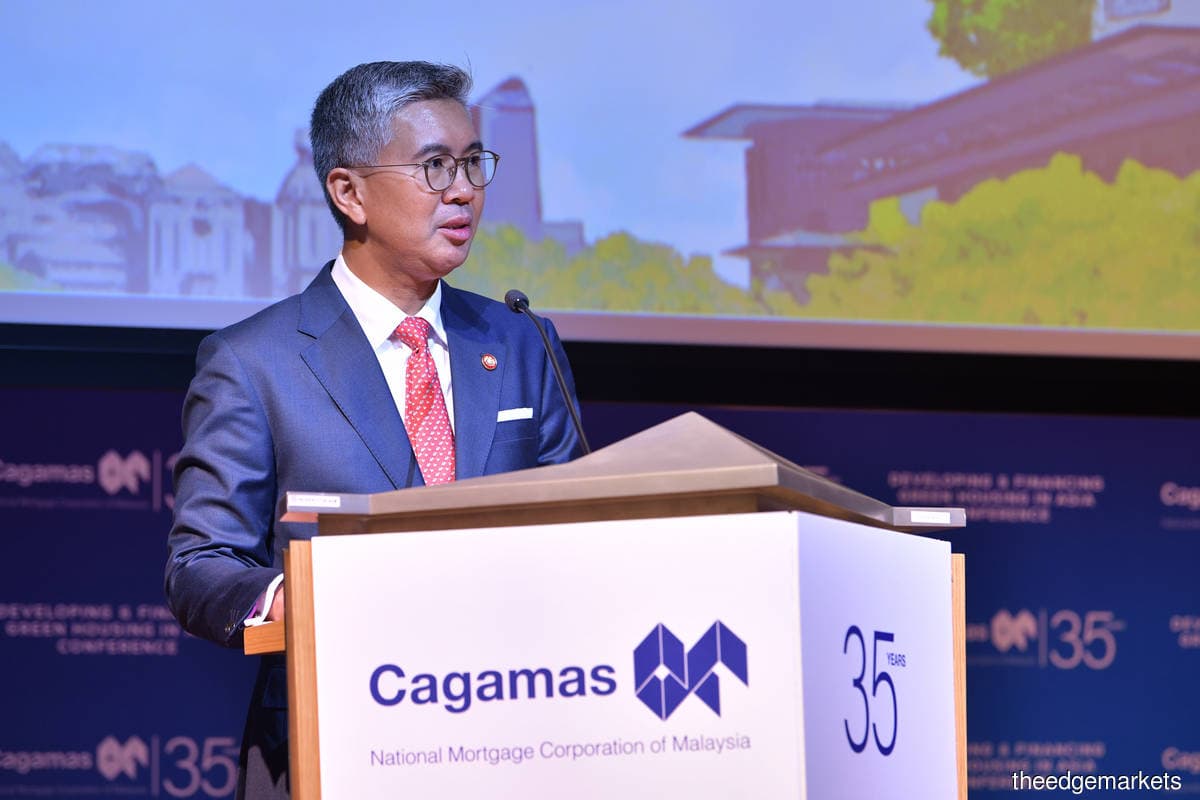
KUALA LUMPUR (Sept 21): The financial sector has a critical role to play in assisting the Government to ensure that Malaysia’s transition to the green agenda remains inclusive and is void of any undesired consequences, according to Finance Minister Tengku Datuk Seri Zafrul Tengku Abdul Aziz.
“The financial and investment ecosystem also has a key responsibility to help the Government address certain structural issues and generate balanced growth opportunities across all sizes of businesses, and all segments of society.
“Otherwise, we might end up with unintended consequences that do not serve our sustainability and inclusivity agenda in the long run,” Tengku Zafrul said in his keynote speech at the "Developing & Financing Green Housing in Asia" conference hosted by Cagamas Bhd on Wednesday (Sept 21).
“To that end, I expect Cagamas and all industry players here to also play a key role in this space, and become the catalyst to support not only the growth of green housing, but also the inclusivity agenda in Malaysia,” he added.
The finance minister said the nation has to be mindful that a world in which only a few people can afford to live is unsustainable, and noted even those with steady incomes are facing difficulties to purchase or rent affordable housing.
“Residential prices remain alarmingly high and out of proportion to income, forcing many people to spend more of their monthly income on housing. Our frontliners, like teachers, police officers, firefighters, and nurses, for example, cannot afford to live near the communities they serve."
Towards addressing this issue, Tengku Zafrul said the Government will be looking at the 11th United Nations Sustainable Development Goal (SDG) which focuses on making cities and human settlements inclusive, safe, resilient and sustainable.
“Through our whole-of-nation approach to sustainability, the Government will continue efforts to ensure SDG elements are embedded in our annual budgets. We started this in Budget 2021 and, I assure you, that this will also be part of Budget 2023,” he added.
Tengku Zafrul said that statistics have shown that the transition to a sustainable and climate-resilient economy is no longer a “nice-to-have”, but a “must-do” that makes for sound socio-economic policy.
“While we have made significant inroads on our path to sustainability, more can and must be done. We urgently need to scale up support using innovative approaches, and this is where sustainable finance development in the financial sector will play a significant role,” he added.
However, he stressed that it is key that this transition towards sustainability does not disenfranchise the poor nor systematically exclude micro, small and medium enterprises.
“If a ‘greener’ house is on the market, is it financially accessible to lower-income buyers? If compliance costs are too high, small and micro businesses may eventually be pushed out of the market,” he said, adding that this is where the financial sector has a role to play in ensuring that the nation's sustainability transition is inclusive.
Read also:
Malaysia will not escape global slowdown in 2023, says Zafrul
Cagamas inks agreement with ADB to expand green mortgage market
BNM: Financial sector vital to manage climate-related risks, support transition
Collaboration from all stakeholders needed to make affordable and green houses accessible
Financial institutions need to connect stakeholders to make green financing work